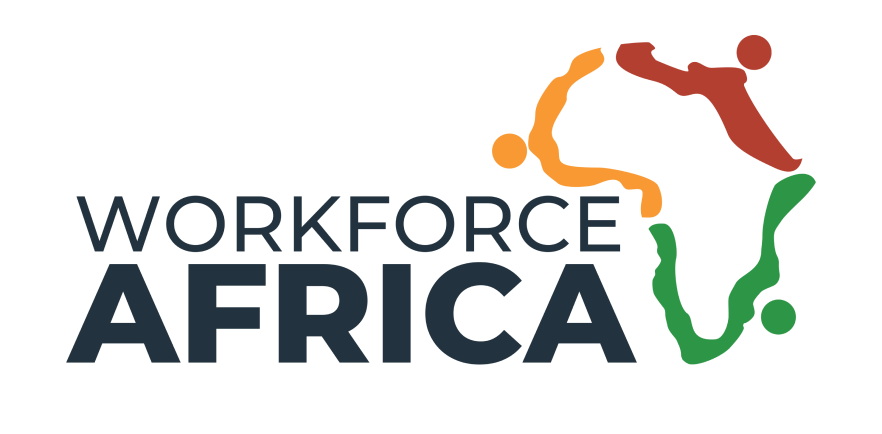I probably don’t have to remind you of the statistics about women in high-level leadership positions in the world today. According to research carried out by Catalyst in 2019, the proportion of women in senior management roles globally grew to 29%, the highest number ever recorded. In 2020, this percentage remained the same. Sometimes, all you have to do is look around the C-suite of your company, and you would get the full picture.
But there are plenty of women who have made it to the top, and during the International Women’s Day celebration by Workforce Group, some of these women converged to discuss topics on gender bias, challenges women face in the workplace, and shared their secrets for success. Some inquisitive participants had many questions to ask, so I recently chatted with our COO, Olutomi Rone to get her thoughts on the questions that were asked and learn more about the issues women face at work, their journeys, career paths, and the advice they’d share with others. If you’re aiming for the top, read on for their quick nuggets of wisdom on leadership.
Challenges Women Face In the Workplace

How can one stand up to the other gender at work, especially during management meetings?
Olutomi: This is one of the Challenges Female Leaders Face in the Workplace. I believe that it’s essential to be yourself as a woman. You should put aside the mentality of “I am a woman, I’m already going to be looked down on, I need to act a certain way because that can affect the way you think, even before you enter any meeting, or relate to any colleague.
The important thing is the value you can bring to the table, which is different for every individual. That’s why no organisation puts one person at the management table; there is a team, and that team is supposed to bring diversity in terms of experience, exposure, and knowledge.
If you are trying to make a point in a meeting and you are being interrupted in a subtle manner that is not disrupting the meeting, just ignore it and make your point. I have been in a similar situation.
But if the interruption disrupts the meeting, there’s nothing wrong with saying, “please let me finish,” and continue to make your point. If you are on that table, there is some value that you’re going to bring, so it is vital to be yourself and play to your strengths.
For someone that has become too familiar with the employees, how can one become firm without jeopardizing the relationship?
Olutomi: It is not advisable to become over-familiar with any staff members, especially with someone who is reporting to you. You don’t have to be impolite to your colleague regardless of the level that they currently are. Still, you can’t become too familiar such that it becomes difficult to dish out disciplinary measures when necessary.
Having said that, if this line has been crossed, remedying it will have to be a gradual process if you don’t want to jeopardize the relationship.
Start to draw boundaries and withdraw gradually so that the person doesn’t notice, and then it just becomes a natural progression, where you can, pull back a little bit and focus more on tasks; this can be done without it affecting the organisation’s deliverables.
Sometimes, you might not have the luxury of time to pull back gradually; If the relationship affects your ability to execute an urgent project you’re working on, you might have to directly have a conversation addressing it.
How can a first-time mother manage home, baby and career altogether, bearing in mind that she also wants to switch/change jobs?

Olutomi: This is another common Challenge faced by women in the workplace. I have one phrase for that, and it is crucial. You need to have “a strong support system”; you cannot do it alone. And so what do I mean by that?
I have never been comfortable with nannies, so the support system for me is usually family and even friends, people who are ready to support you. Even if you have everything planned out, work will happen, and you might not be able to do these things; you need to have people that are ready and waiting to pick up where you left off.
Ask for support at work when you need it. I don’t know any company in their right mind that will not provide that support as long as you are not taking advantage.
The second vital thing is planning. There has to be deliberate planning that allows you to spread yourself across all the responsibilities you have. If you don’t plan your days ahead, things will get tangled up quickly.
As a career woman looking to change jobs, you have to perform on your current job and deliver. This will help you personally with your growth and confidence to change jobs; the company will speak well of you and give you references.
You need to settle and make sure you’re back on top of things before applying for a job. If you just started a job, you might not be able to ask for support at that particular time. But of course, you can always ensure you have a strong family support climate.
How can women gain insights about opportunities for growing their careers in HR and Tech?
Olutomi: It is by looking online and into the particular blogs, articles, and publications related to HR and Tech. You need to join a lot of the focus groups, whether WhatsApp groups or any other type of group, the more specific, the better.
Many HR and tech-related groups have been set up; I even belong to a few of them myself. These platforms usually have regular posts of jobs and growth opportunities. Also, when you contribute to those groups, people will start to see you as an expert in that area.
There is a lot of referral and recommendation hiring now because people don’t have the time to go through the entire recruitment process.
Another important thing one can do is to have a mentor in your field who you look up to. They can point you in the right direction specifically. If they have a wider network of people, which they would, typically, then they can connect you with the right people.
How do you think we can foster and encourage ourselves as women to embrace ourselves and be our greatest cheerleaders?
Olutomi: This is very easy for some women. Every woman’s success should be an inspiration to others, but this will not resonate with every woman. But take a look at women like Kamala Harris or Ngozi Okonjo-Iweala and what they have achieved. They are paving the way for other females; if something hasn’t been done before, it makes it more difficult to achieve.
The success of every woman should be an inspiration to all women. The best thing that we could do as women is to develop this mindset. It would be best if you had the right circle of women around so that you can support and motivate each other.
Ultimately, start with yourself. It is vital to be your cheerleader, blow your own trumpet, or no one else will do it. That will be you, supporting a woman.
How do you handle a boss who doesn’t communicate her decisions but acts and if questioned, takes offence?
Olutomi: This is a tricky position to be in, but there’s always a way to navigate it. So what I will do in that kind of situation is to develop a process that ensures that she indirectly or unconsciously has to communicate her decisions.
Ask for her opinion on tasks so that he/she is communicating and sharing ideas with you on what she will likely do. Let her understand that you want to contribute to get things done.
You can make suggestions, but if you start to have major issues with your boss, nine times out of 10, you won’t win. So avoid this at all costs and find a way to work around the situation.
How possible is it for one to get a “Head of HR” role when you’ve worked for only one company?
Olutomi: I will say that it is possible, but of course there will be a lot of work to do.
Think of it as point A and point B; point A is where you currently are, and point B is where you want to be. Be honest with yourself; sit down, assess and analyze where you are in terms of your competencies, experience, knowledge, and capacity (Point A).
Look at someone in that role you are out for; examine their soft skills because you might not be able to determine their technical skills. You also have a world of information online; look for all the skills you need to function in that role(Point B). Identify the gaps and start to work on them immediately. Take courses to fill up those gaps, do not rush so you don’t get stuck. Start to demonstrate those skills, and you will gradually grow into that position.
There’s no need to rush this because you don’t want to get there and feel stuck; you need to be ready for the position.
How to deal with criticism and negative feedback from the organisation?
Olutomi: Be sure that the feedback is actually criticism and not constructive feedback because missing constructive feedback can hurt your career. Even in negative feedback, you might be able to draw something from it, separate the wheat from the chaff and ignore the negative feedback.
If this gets too much, you can escalate it to your HR department because the emotional drain from criticism can throw you off balance and affect your career.
What are the ways to successfully implement new Appraisal systems and Performance measurement tools in a heavily politicized organisation?
Olutomi: This is a challenging position for companies to be in. Consider what level the politics exist in the workforce. If it is at the managerial level, it is even more difficult. If the politics is at an intermediate level, the solution will be to implement a full-proof appraisal system that only allows objective, measurable feedback.
But if the politics is at the managerial level, it might take the cultural transformation of that organisation, and this will take some time.
What enabled these great ladies, to be where they are today in their careers.
Olutomi: It is the drive to achieve more because it gets tough. Success is not for the faint-hearted. That drive has to be “110%”. You have to be clear on where you want to be and put in the hard work to get there.
Know your onions, be focused, and demonstrate expertise in your area. Don’t waste your pain; learn how to turn your challenges into opportunities, and you will never be ignored.
What is the difference between Work flexibility/life balance and work-life sway?

Olutomi: Work flexibility (also called workplace flexibility) is when the employer gives its employees the freedom to choose when, where, and how they work to help align organisational goals with individual goals. Work flexibility involves employers providing their employees with flexible work options and alternatives to help them meet the demands of both professional and personal lives.
Work-life balance is a term used for the idea that you need time for both work and other aspects of life, whether those are family-related or personal interests. In other words, work-life balance is the state of equilibrium where a person equally prioritizes the demands of one’s career and the demands of one’s personal life.
What are you doing concerning Women’s Development?
Olutomi: Charity begins at “home” My work towards this is really with the women that I work with on a daily basis. This is so important to me. I work with several women, and I am very deliberate with the feedback that I give to them. I always consider the female factor. I help females around me to be better versions of themselves.
Why does it seem difficult to get places in Abuja and Lagos where HR professionals can train on HR software to be HR compliant in this evolving world?
Olutomi: I actually don’t think it is difficult; several firms do this. Some are even designed locally; you just have to look in the right place. Some HR consulting firms like Workforce Group offer training solutions such as these.
Final Words
I am passionate about two things:
- We need to start early; when raising our female children, we need to train them to be strong women wherever they find themselves. Let us make them an essential part of this process and look forward to their future as strong women.
- We need to stop the bias against ourselves. I would love for us women to support each other, but where you can’t, don’t create a bias for another woman. When women start to degrade other women, it is a lose-lose situation for us.

Chief Operating Officer, Workforce Group
Olutomi started her career in the UK within the banking, consulting, and manufacturing sectors. In Nigeria, she has worked in the consulting sector at PwC and was the Head of Business Planning at IHS, she then moved on to be the Chief Operating Officer at Kimberly Ryan Limited.
She holds a BA(ECON) Honors from the University of Manchester, UK and is ACCA qualified.
She is a cross-functional leader with 19 years of experience in Business Planning and analysis, Strategy Formulation, IPO Readiness, HR, Finance, and Accounting. Her experience cuts across Finance, HR Consulting, Telecommunications, Manufacturing, and Construction Industries.
Recommended Post: How to Choose a PEO as you Market Expansion Partner








